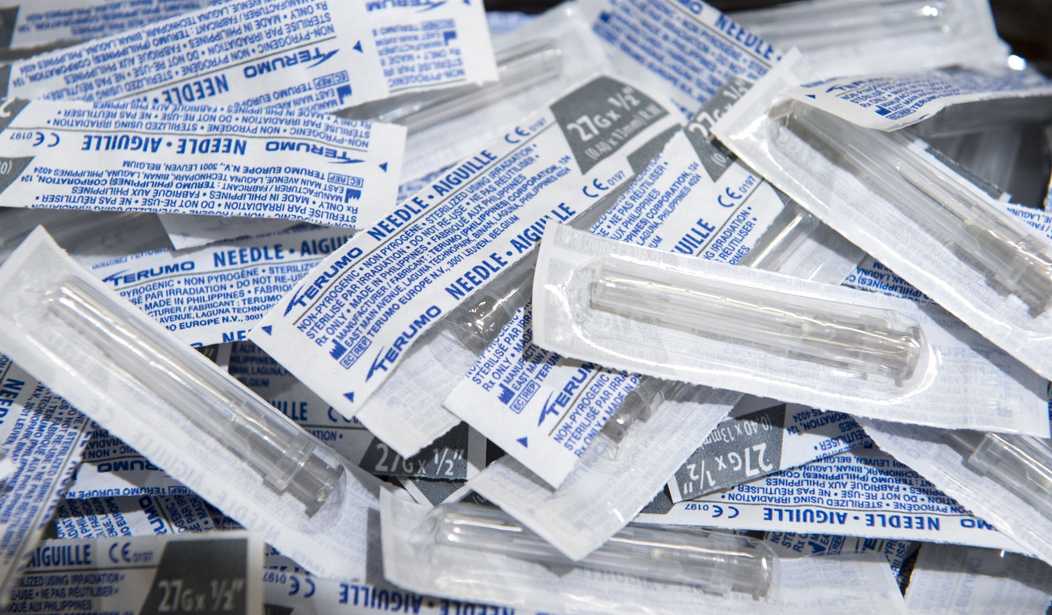We hear the horrifying statistics daily – over 106,000 drug overdose deaths in America in 2021, with nearly 30% deaths in people 15-34.
These young people have their whole lives ahead of them, promising lives tragically cut short. And it's getting worse. In Colorado, overdose drug deaths rose 38% from 2019 to 2020.
You or someone you know could soon be one of those desperately grieving parents of a dead child.
At the heart of the problem is the tendency for parents to be their kids' "best friend" rather than the strong authority figure imposing necessary limits to guide their child's behavior.
One of those best friend type parents – the kind who open their homes to underage drinking and marijuana smoking to "keep their kids safe" – put me and some high school friends on a dangerous road. I remember dropping acid cuts from a sheet of blotter paper handed out by a friend's dad during a party at his home. Before long, his two sons and I were on the pointy edge of a syringe full of heroin. "Cool" parents, beware: you're not protecting your kids by enabling their youthful experimentation with drugs that can kill them.
By age 22, I had been using heroin daily for three years. My life revolved around constant stealing and lying to get drugs. Finally, my behavior became so destructive that my parents kicked me out of their home, changed the locks, and reset their bank account information so I couldn't access funds.
Somehow, I kept my waiter job. But unfortunately, I also sold and delivered drugs to finance my habit. Years of possession charges for controlled substances have finally resulted in a judge ordering me into a local outpatient treatment program instead of jail time.
Recommended
The program lasted three months, a mere pin-drop compared to my
years of heroin addiction. My parents welcomed me back into their home and tried to give me a sturdy foundation back into everyday life and sobriety. Mom and Dad thought I was clean, unaware I had quickly relapsed once I reconnected with my old friends and heroin dealer. They had no idea I was back on drugs until I accidentally left a thumbnail-sized baggie of heroin on the counter in my parent's bathroom. Or was it an accident?
My dad became withdrawn, and my mom sobbed as they gave me an ultimatum: I could either commit to an effective treatment program or leave immediately. They would no longer allow me to destroy myself under the safety of their roof. Instead, they wanted me to enter a year-long rehabilitation program with a Christian focus called 180 Ministries, leaving my East Coast home and the drug environment that defined me.
Feeling defiant and misunderstood, I left. The iron fist of addiction had slammed me down so hard that it overrode any thought of my future. I was so physically dependent on heroin that I couldn't go without it for six hours before suffering withdrawal symptoms - gut cramps, chills, hot flashes, vomiting, diarrhea, and terrible pains all over my body.
I shot heroin five to 10 times daily, chasing my high while blowing out my veins. Soon my boss fired me for not showing up. I began trading drugs for places to sleep. I often wandered the streets alone until someone would call me in search of drugs, which I got by stealing and bartering. I stole my friends' wallets and pretended to help look for them until I could get away and score my fix. I convinced people to try heroin for the first time so I could take from their bags what I needed for the day, leaving them enough to begin a life of addiction. Every day of helpless dependence drove me deeper into a prison of isolation and self-hatred.
This is the life of the addict that the people pushing "safe injection site" bills like SB23-1202 in Colorado don't understand. "Safe" is a ridiculous claim when it comes to death-dealing drugs. This bill would authorize "life-saving overdose prevention centers" throughout Colorado. But although the site's supervising medical personnel may prevent overdose death by administering an antidote, the brutal reality remains: enabling addicts to continue shooting poison into their veins is the exact opposite of keeping them "safe." The "safe injection site" bill is cruel, not kind, sentencing addicts to continue suffering as they lose their willpower, minds, bodies, and finally, their lives to the demon drug. And there's no antidote for methamphetamine or cocaine overdose, so that the addict could die in the "safe" site.
Colorado's Democratic-majority legislature's response to the drug epidemic is the "cool parent" approach that always fails. The injection site bill passed the Colorado House after dozens of people testified at the committee hearing. I listened in disbelief as several doctors urged the committee to pass this lethal bill. The medical community knows that only quitting drugs saves lives, yet they hide behind a false veil of "compassion" and "empathy." But why would anyone, especially a medical professional who takes an oath to "not harm," want to help an addict keep shooting up the drug that is killing them? They may save an addict from an overdose or two, but that addict uses it many times a day and is immediately back on the street hunting more drugs – as I was – and risking another overdose.
It was disturbing to hear the woman who runs the Denver "Harm Reduction Action Center," which gives away needles and other injection aids, grinning and laughing as she described how she is looking forward to opening an injection site there. She sounded like she was launching a social club. Since 2018, the Denver City Council has authorized Colorado's first injection site; they only need the bill's passage to make this woman's twisted dream come true.
In my case, I finally got sick of being dope-sick, watching addict friends die, and dodging the police. Finally, my need to change the lifestyle that killed me overcame my desire for the drug. So I went to Colorado and enrolled in the treatment center I had rejected. That was 11 years ago, and I can admit that my parents helped save my life by cutting me off until I sought recovery. Now I have a life I could never have imagined, with a wonderful wife and a fulfilling calling as the Director of that treatment center.
At 33, my journey has taught me that addicts' lives are only saved through treatment and abstinence, not by shooting up with "medical supervision." I advise the Health and Human Services Committee of the Colorado Senate to invest in health instead of enabling addiction. Vote no on SB 23-1202 and put government funds into desperately needed treatment services that save lives. Even Gavin Newsom, one of the most liberal governors, knew enough to veto the California legislature's "injection sites" bill.
Parents, don't cater to your children's addiction with accommodations keeping them in drug slavery. Instead, stand on your God-given authority and counter their self-destructive behavior with unwavering conviction. Understand that without change, they will never be free.
Kyle Roth is the Director of the Men's Program at 180 Ministries, a Denver Christian-based nonprofit residential treatment center where, since 2004, ex-addicts have been helping those struggling with addiction heal their destructive behavior.

























Join the conversation as a VIP Member